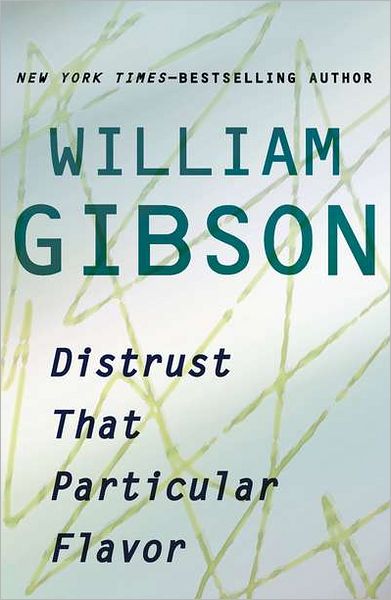Book #12 for 2012: Super Sad True Love Story by Gary Shteyngart
No matter what you might guess from its title, Super Sad True Love Story isn’t a novel of teenage romance. It’s not even a YA novel. It’s a dystopian, near-future, catastrophe novel, the wrenching story of America’s final transformation into a crumbling, third-world nation willingly turning itself into a police state in an attempt to clear out the poor, the immigrants, the homeless who have dragged our international credit rating down to the point where we can’t even get a loan from China, which has now become the leading world power. It ends in cataclysm and horror.
But Gary Shteyngart, its author, is a satirist of darkly comic sensibilities, so that’s not how he tells it. Instead, he tells it as the story of a 39-year-old, unmarried Jewish male named Lenny Abramov, who comes across as a somewhat chunkier, balder version of the character Woody Allen has played in so many movies (and who I suspect bears some resemblance to Shteyngart himself). Lenny falls wildly in love with a 19-year-old American teenager of Korean ancestry named Eunice Park that he meets during an extended trip to Italy (a much nicer place to be at this point in future history). He can’t stop thinking of her when he returns to the U.S., where he learns that the country has put itself in the hands of someone referred to only as Defense Secretary Rubinstein, who has stationed troops in the streets of Manhattan and gunboats in the Hudson River. All trappings of the militarized state are accompanied by signs that read “It is forbidden to acknowledge the existence of this checkpoint/vehicle/whatever (‘The Object’). By reading this sign you have denied existence of the object and implied consent,” a policy known to the general public as “imply and deny.” If Shteyngart even makes mention of the U.S. having a president at this point in the near future I missed it, so Rubinstein has apparently effected some kind of military coup.
But Lenny, a second generation Russian immigrant, doesn’t have time to be worried about any of this. He worries mostly about three things: The first is his credit rating. In Rubinstein’s America your credit rating is of such paramount important that it’s automatically announced by street signs as you walk past them. God forbid you should be mistaken for a Low Net Worth Individual (LNWI, or what we used to call “poor person”). Fortunately Lenny’s credit rating is high enough to keep him out of the LNWI class, if not quite high enough to qualify him as an HNWI (High Net Worth Individual).
The second thing Lenny worries about (and once again he bears a striking resemblance to Woody Allen here) is death. He’s so afraid of growing old and dying that he’s taken a high-ranking job with a company called Post-Human Services that offers rejuvenation services and potential immortality using the latest nanotechnological cell-reconstruction techniques. These techniques are so expensive that they only market them to HNWIs, so ironically Lenny can’t afford his own product. However, his boss and long-time mentor Joshie can. Despite being thirty years Lenny’s senior, Joshie is youthful, vital and passes for Lennie’s younger brother. Eventually he will also become Lennie’s romantic rival.
The third thing Lenny worries about is Eunice Park, the Korean-American teenager he met in Italy, a second generation immigrant herself and essentially an LNWI with an uncertain future. Eunice has just broken up with her boyfriend in Italy and, when she moves back to the states, Lenny convinces her to move into his small Manhattan apartment with him. Although Eunice recognizes that Lenny is a bit age inappropriate for her, not to mention bald, overweight and fairly unattractive (she calls him “nerd-face”), she also discovers that she feels a certain affection for him, perhaps as a father substitute (her own father is cold and violent) or perhaps just because she needs someone who, unlike her boyfriend in Italy, loves her more than she loves him.
Super Sad True Love Story is told as a kind of epistolary novel, a mosaic of entries in Lenny’s diary and the text messages exchanged by Eunice, her family and her friends over an email/chat system known as GlobalTeens. In the first two-thirds of the book, the sheer denseness of the (often comic) detail that Shteyngart accretes from these fragments of text to describe Lenny’s life and the state of the world around him frequently threatened — I have to be honest here — to overwhelm my ever-tenuous attention span. But in the last third of the novel the true horror of the situation that Lenny and the narrow world around him (which consists mostly of Manhattan, Queens and Long Island) are in begins to sink in and the novel stops being biting satire and becomes something deeper, more resonant, something almost terrifying and, yes, super sad.
Much of what happens in Super Sad True Love Story is frantic almost to the point of chaos, but Shteyngart ends it on a reflective note that could almost be described as elegiac (look it up if you have to) in a way that makes a touching sense of the romance between Lenny and Eunice in the context of the self-destruction of America. This denouement provides the kind of emotional summing up of the novel’s events that the reader desperately needs after the comic/frightening intensity of much of what precedes it. It wasn’t until then that I realized that, yes, I really did quite like this book.

